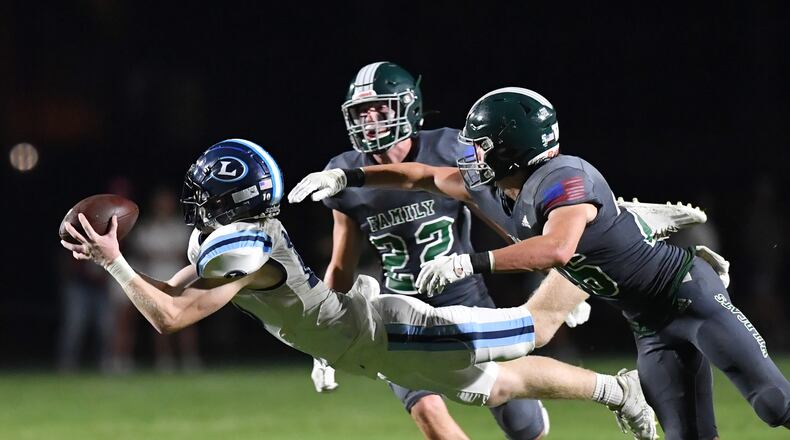Georgia’s largest private schools will be competing for their own state championships independent of public schools beginning with the 2022-23 academic year if a proposal by the Georgia High School Association’s reclassification committee chairman gets approval Oct. 3.
The private schools most affected — Benedictine, Blessed Trinity, Greater Atlanta Christian, Lovett, Marist, Pace Academy, St. Pius, Westminster and Woodward Academy — unanimously are against the idea and hint they’ll consider leaving the GHSA if forced to compete only among themselves.
“We want to be part of the GHSA moving forward, but we will have a good plan for all possible outcomes,” said Greater Atlanta Christian athletic director and football coach Tim Hardy, who presented a collective counterproposal to the reclassification committee this week that would keep private and public schools together.
Those nine private schools won 35 of the 75 championships during the past academic year in 5A, 4A, 3A and 2A, the classifications in which they currently complete. They won seven other state titles in sports such as volleyball and swimming that combine classes. There are 222 public schools in 5A, 4A, 3A and 2A.
“With the amount of phone calls and complaints that were made this year, something has to happen because the public schools in 2A through 5A just feel they do not have a fair shot to advance or win state championships,” said Dr. Curt Miller, the GHSA reclass chairman, member of the GHSA’s board of trustees and the athletic director at Oconee County, a Class 3A public school.
Miller, expressing a widespread opinion among public schools, believes private schools have a competitive advantage because they can accept students from anywhere. Public schools have school-district boundaries. Miller proposes keeping private schools in traditional regions with public schools but separating them for state playoffs and meets.
The GHSA separated public and private schools for Class A state playoffs in 2012 but left the larger private schools alone.
Any change would need approval from the GHSA’s 75-member executive committee. Its next meeting is Oct. 3. Most committee members represent regions with majority public schools, meaning they can impose their will on the private schools if they choose.
GHSA executive director Robin Hines isn’t taking sides. “I don’t have a vote regarding reclassification,” he said. “I just implement the plan provided by the reclassification committee that is approved by the full committee. I value all of our members.”
After the October meeting, the GHSA will begin its biannual process of placing its 450-plus member schools into classifications based primarily on enrollment numbers. Private schools historically have received enrollment multipliers and other gadgets to move them into higher classifications, but many public schools don’t believe they go far enough.
The counterproposal, presented by Hardy on behalf of all nine private schools, starts by moving GAC and Westminster up into 4A and Lovett and Pace Academy into 3A, freeing 2A of private schools except for Riverside Military.
More creatively, the plan calls for moving individual private-school sports teams into higher classes based on their track record. For example, a private school’s tennis team might play in 6A or 7A after winning state titles in lower classes while that school’s wrestling program could remain in 3A. Alabama uses a similar model, and California, Pennsylvania and Ohio also use formulas or power ratings to help classify teams, according to Hardy.
“Our proposal uses results, not all of the other debatable factors, to guide efforts to achieve competitive balance,” Hardy said.
Miller doesn’t like that idea because it means keeping nearly the status quo for two more years.
“No matter how high they go in classification, they’re still going to be competing against schools with designated school zones,” he said.
The nine private schools are equally disenchanted with Miller’s plan.
“We categorically reject this model as something that is in any way equitable to the opportunities provided to the other members of the GHSA,” Hardy said. “The proposed model is based on a separate-but-equal concept. Though it is separate, it is not even remotely equal and does not treat the large private schools as full-fledged members of the GHSA.”
About the Author
The Latest
Featured

